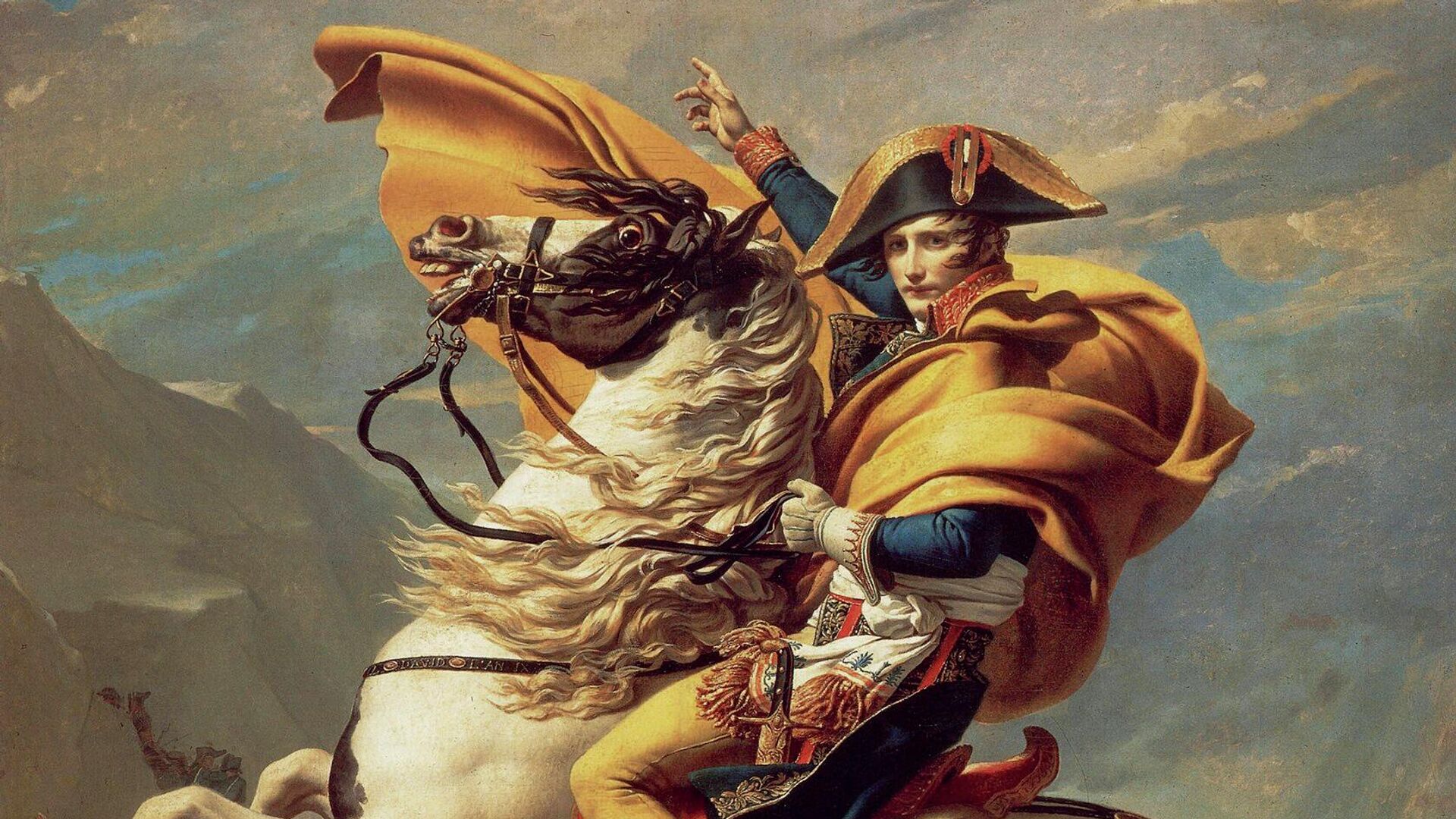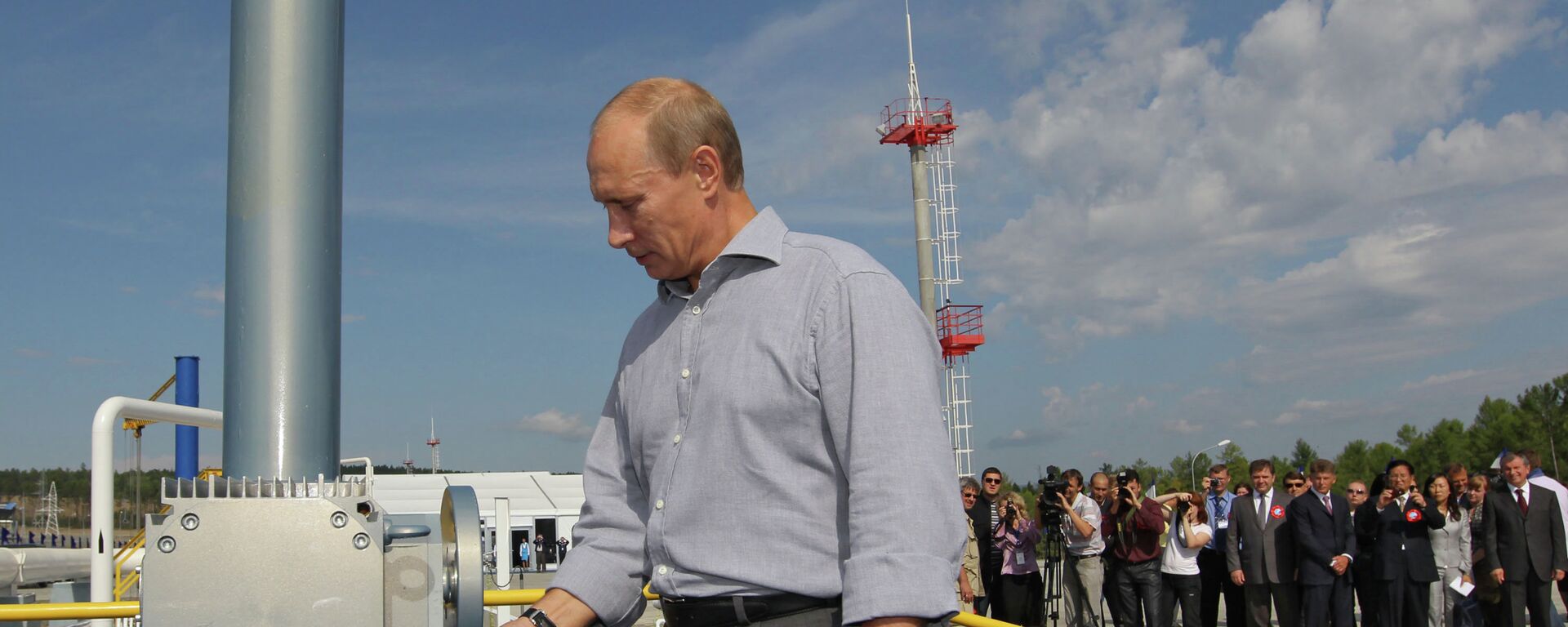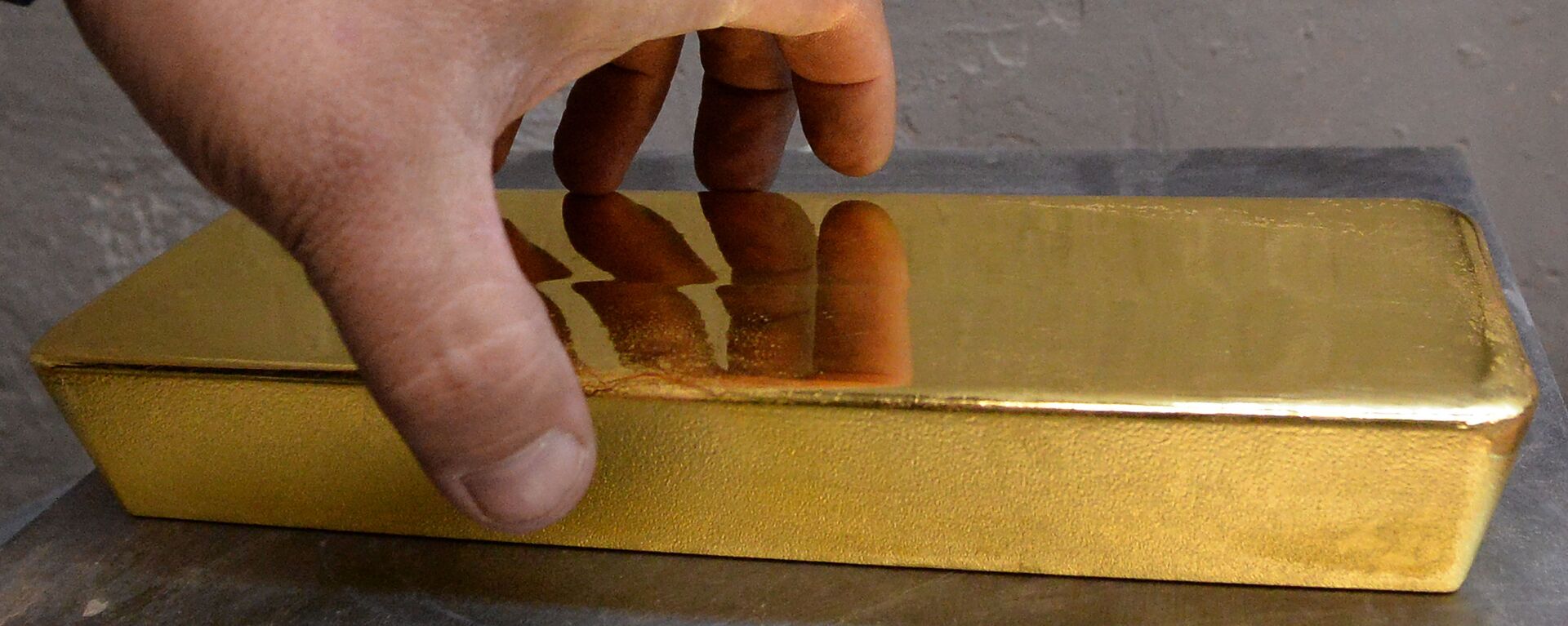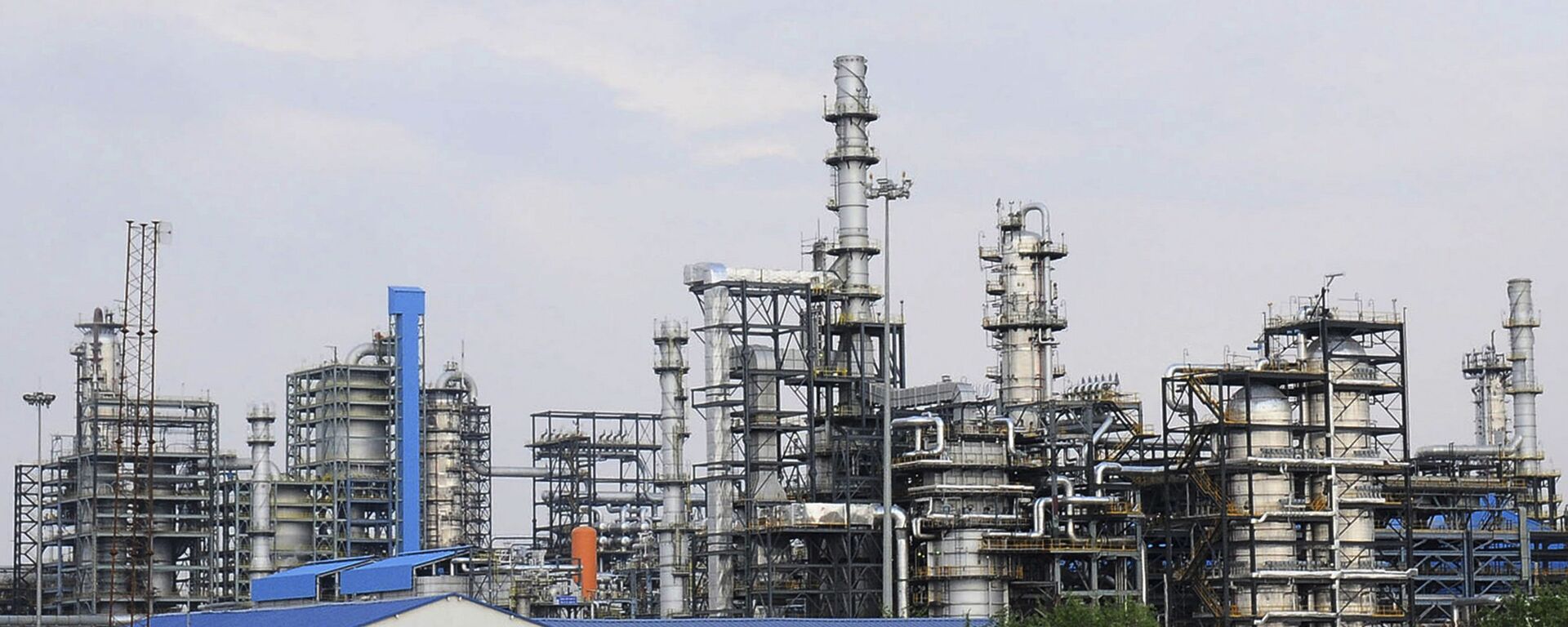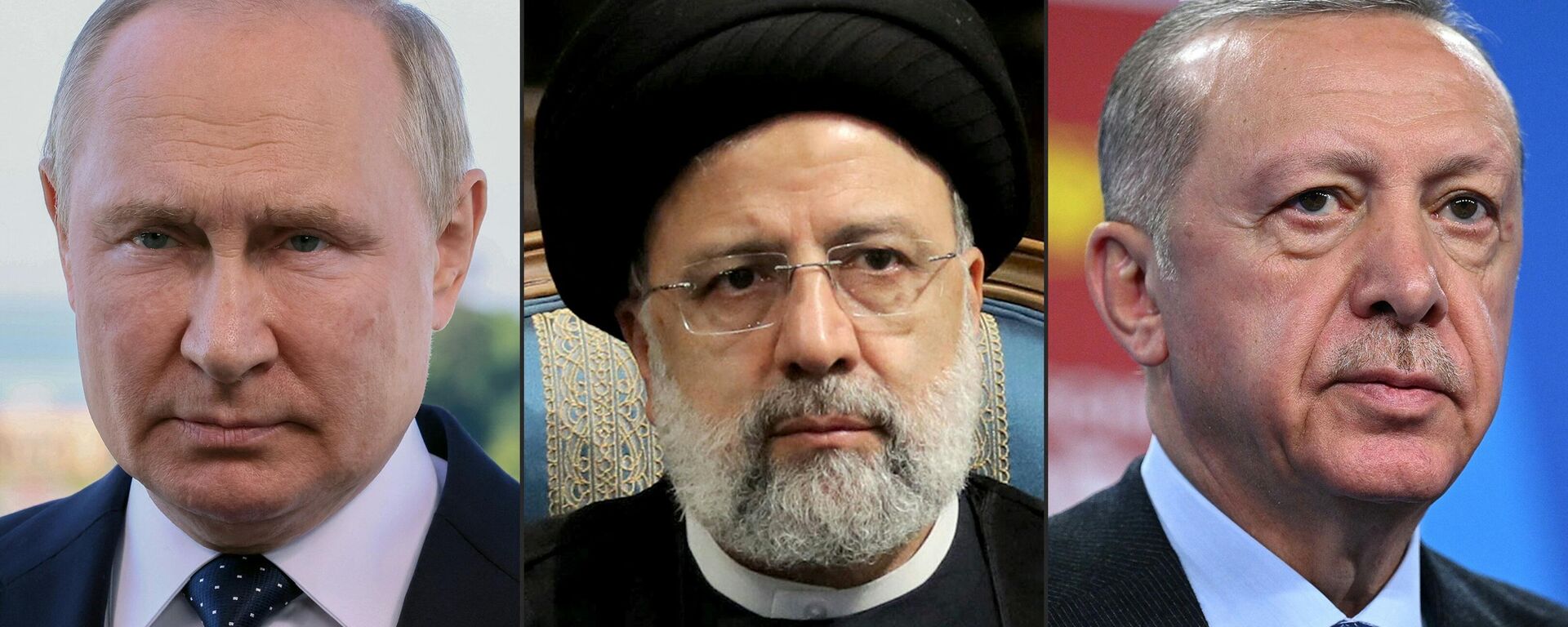https://sputnikglobe.com/20220722/europe-repeating-napoleons-continental-blockade-mistake-with-russia-sanctions-french-media-says-1097700670.html
Europe Repeating Napoleon’s Continental Blockade Mistake With Russia Sanctions, French Media Says
Europe Repeating Napoleon’s Continental Blockade Mistake With Russia Sanctions, French Media Says
Sputnik International
Western nations have faced skyrocketing energy prices, creeping inflation, and plummeting growth amid their attempt to “punish” Russia into submission for... 22.07.2022, Sputnik International
2022-07-22T13:57+0000
2022-07-22T13:57+0000
2022-07-22T14:18+0000
europe
napoleon
russia
sanctions
blockade
https://cdn1.img.sputnikglobe.com/img/07e6/07/16/1097696382_0:124:1681:1070_1920x0_80_0_0_5eeb69cd88be4143a5f6d010167f1035.jpg
The current sanctions war against Russia by the European Union and the United States bears striking parallels to Napoleon Bonaparte’s ill-fated early 1800s attempt to institute a blockade against Great Britain, which ultimately culminated in the French Empire’s economic ruin, French economist Olivier de Maison Rouge believes.In a recent op-ed in Le Figaro, de Maison Rouge pointed out that the EU’s sanctions on Russia in response to the “military aggression on its eastern flank” have so far only led to the appreciation of the Russian ruble, and a stark and unpleasant realization of just how much Europe depends on Russian natural resources for its well-being.The present situation is not unique, and has a historical parallel in the 19th century, the economist, who teaches at the Paris-based ILERI School of International Relations, and the School of Economic Warfare, explained.In a Napoleonic decree penned in November 1806, the British Isles were declared to be in a state of blockade, with all trade prohibited, and all letters or packages with English addresses, or to Englishmen, or written in the English language, banned from being sent at France’s post offices and seized.A year later, de Maison Rouge recalled, in the decree of Milan of December 17, 1807, Napoleon “ordered any boat anchored in a British port, whatever its nationality, to be considered flying the British flag and therefore confiscated by the customs administration. The direct consequence of this policy for France was the disruption of supplies.”The professor noted that with each of Napoleon’s European conquests, the restrictions on trade with Britain were extended, with the emperor envisioning a ban on “all British goods from Lisbon to Saint Petersburg.”With the Treaty of Tilsit of July 1807, Russia and Prussia joined the blockade, and between 1807 and 1810, Sweden and Portugal were also made to join the embargo (Russia would exit from this arrangement in 1810 when the tsar began allowing neutral ships to land at Russian ports, culminating in the French invasion of 1812).Britain’s response to the restrictions, de Maison Rouge wrote, included its own embargo on the young American republic’s trade with continental Europe, thus disrupting France’s access to the riches of the New World. At the same time, the blockade led to a virtual drying up of major ports in France, Holland, Germany, and Italy.“The Emperor’s wish was to collapse the English economy by cutting off its commercial outlets, and incoming flows of raw materials for the supply of manufactured goods (cereals, weapons, ammunition, cotton, wool, etc.). Indeed, it is estimated that England’s exports fell by 20 percent between 1808 and 1810.”However, in time, “the effects of the blockade proved counterproductive, because goods like machine tools ran out, while [lost] sales of European goods outside Europe were never compensated. While England knew how to forge an economy turned toward other markets (in particular in Latin America)…and established its maritime power against the continent, creating new outlets which would make its fortune in the 19th century, France, centered on the continent alone, was not able to find alternatives beyond its domestic markets,” de Maison Rouge explained.In the end, “despite temporary economic crises (in 1808 and 1810) England ultimately emerged strengthened from this ordeal, subsequently enlarging its empire and its clientele and becoming the dominant nation of the 19th century,” the economist concluded.In recent weeks, Western officials, academics, and media have expressed fears that the West’s push to “punish” Russia for its military operation in Ukraine has backfired on the European Union, shaping up to be the region’s most severe inflationary and energy crisis since the 1970s Arab oil embargo and stagflationary crisis. The US, which had far weaker trade ties to Russia before the escalation of the crisis, has also been affected, with the White House blaming spiking inflation and gasoline prices on Russia and calling the problems “Putin’s price hike.”Last week, Romanian Deputy Prime Minister Hunor Kelemen warned that as the Ukraine crisis shows no signs of letting up, European countries “will all pay the price” for the restrictions slapped on Russia during the coming winter. “This will be a harsh winter, and possibly the harshest winter in the past 40, 50 or 60 years, and, unfortunately, for the whole of Europe", he said.Earlier this month, Putin suggested that the West had already lost its “sanctions war” against Russia, and sparked the start of the “radical breakdown of the American-style world order.” Admitting that sanctions have created some difficulties for the Russian economy, the Russian president stressed that their outcome nevertheless hasn’t at all been “what the initiators of the economic blitzkrieg against Russia were counting on.”
https://sputnikglobe.com/20220706/china-india-binge-buy-russian-energy-nearly-double-last-years-purchases-amid-wests-restrictions-1097012707.html
https://sputnikglobe.com/20220715/european-commission-proposes-ban-on-imports-of-russian-gold-to-eu-1097357153.html
https://sputnikglobe.com/20220627/experts-rubbish-nonsense-reports-accusing-india-of-clandestine-transfer-of-russian-oil-to-west-1096722757.html
https://sputnikglobe.com/20220719/how-russo-turkish-iranian-talks-may-help-fix-regional-problems-set-stage-for-global-transformation-1097588186.html
Sputnik International
feedback@sputniknews.com
+74956456601
MIA „Rosiya Segodnya“
2022
News
en_EN
Sputnik International
feedback@sputniknews.com
+74956456601
MIA „Rosiya Segodnya“
Sputnik International
feedback@sputniknews.com
+74956456601
MIA „Rosiya Segodnya“
europe, napoleon, sanctions, blockade
europe, napoleon, sanctions, blockade
Europe Repeating Napoleon’s Continental Blockade Mistake With Russia Sanctions, French Media Says
13:57 GMT 22.07.2022 (Updated: 14:18 GMT 22.07.2022) Western nations have faced skyrocketing energy prices, creeping inflation, and plummeting growth amid their attempt to “punish” Russia into submission for Moscow’s military op in Ukraine. According to the Russian president, the sanctions’ outcome hasn’t at all been “what the initiators of the economic blitzkrieg against Russia were counting on.”
The current sanctions war against Russia by the European Union and the United States bears striking parallels to Napoleon Bonaparte’s ill-fated early 1800s attempt to institute a blockade against Great Britain, which ultimately culminated in the French Empire’s economic ruin, French economist Olivier de Maison Rouge believes.
In a recent op-ed in
Le Figaro, de Maison Rouge pointed out that the EU’s sanctions on Russia in response to the “military aggression on its eastern flank” have so far only led to the appreciation of the Russian ruble, and a stark and unpleasant realization of just how much Europe depends on Russian natural resources for its well-being.
The present situation is not unique, and has a historical parallel in the 19th century, the economist, who teaches at the Paris-based ILERI School of International Relations, and the School of Economic Warfare, explained.
“Take for example the European blockade declared against England by Napoleon I. Although English industry initially faltered, it was ultimately able to forge new commercial partnerships with its vast empire, enabling it to reach the height of its glory, on land and at sea, in the 19th century,” de Maison Rouge wrote.
In a Napoleonic decree penned in November 1806, the British Isles were declared to be in a state of blockade, with all trade prohibited, and all letters or packages with English addresses, or to Englishmen, or written in the English language, banned from being sent at France’s post offices and seized.
A year later, de Maison Rouge recalled, in the decree of Milan of December 17, 1807, Napoleon “ordered any boat anchored in a British port, whatever its nationality, to be considered flying the British flag and therefore confiscated by the customs administration. The direct consequence of this policy for France was the disruption of supplies.”
The professor noted that with each of Napoleon’s European conquests, the restrictions on trade with Britain were extended, with the emperor envisioning a ban on “all British goods from Lisbon to Saint Petersburg.”
With the Treaty of Tilsit of July 1807, Russia and Prussia joined the blockade, and between 1807 and 1810, Sweden and Portugal were also made to join the embargo (Russia would exit from this arrangement in 1810 when the tsar began allowing neutral ships to land at Russian ports, culminating in the French invasion of 1812).
Britain’s response to the restrictions, de Maison Rouge wrote, included its own embargo on the young American republic’s trade with continental Europe, thus disrupting France’s access to the riches of the New World. At the same time, the blockade led to a virtual drying up of major ports in France, Holland, Germany, and Italy.
“England, for its part…was able to forge new commercial relations, particularly with Canada, and then with the United States and Latin America,” the economist noted. In the meantime, in the French-occupied nations, local merchants, sometimes aided by corrupt French officials, were able to organize smuggling routes, “partially wiping out the effects of the blockade” and ultimately forcing French customs to start granting import and export licenses in 1809 to certain shipping companies and for certain goods.
“The Emperor’s wish was to collapse the English economy by cutting off its commercial outlets, and incoming flows of raw materials for the supply of manufactured goods (cereals, weapons, ammunition, cotton, wool, etc.). Indeed, it is estimated that England’s exports fell by 20 percent between 1808 and 1810.”
However, in time, “the effects of the blockade proved counterproductive, because goods like machine tools ran out, while [lost] sales of European goods outside Europe were never compensated. While England knew how to forge an economy turned toward other markets (in particular in Latin America)…and established its maritime power against the continent, creating new outlets which would make its fortune in the 19th century, France, centered on the continent alone, was not able to find alternatives beyond its domestic markets,” de Maison Rouge explained.
In the end, “despite temporary economic crises (in 1808 and 1810) England ultimately emerged strengthened from this ordeal, subsequently enlarging its empire and its clientele and becoming the dominant nation of the 19th century,” the economist concluded.
In recent weeks, Western
officials,
academics, and
media have expressed fears that the West’s push to “punish” Russia for its military operation in Ukraine has backfired on the European Union, shaping up to be the region’s most severe inflationary and energy crisis since the 1970s Arab oil embargo and stagflationary crisis. The US, which had far weaker trade ties to Russia before the escalation of the crisis, has also been affected, with the White House blaming spiking inflation and gasoline prices on Russia and calling the problems “Putin’s price hike.”
Last week, Romanian Deputy Prime Minister Hunor Kelemen
warned that as the Ukraine crisis shows no signs of letting up, European countries “will all pay the price” for the restrictions slapped on Russia during the coming winter. “This will be a harsh winter, and possibly the harshest winter in the past 40, 50 or 60 years, and, unfortunately, for the whole of Europe", he said.
Earlier this month, Putin suggested that the West had already lost its “sanctions war” against Russia, and sparked the start of the “radical breakdown of the American-style world order.” Admitting that sanctions have created some difficulties for the Russian economy, the Russian president
stressed that their outcome nevertheless hasn’t at all been “what the initiators of the economic blitzkrieg against Russia were counting on.”
